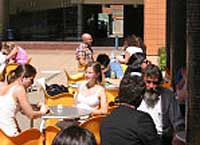|
||||||||||||||||||||||||||||||||||||||
| Environment and Sustainability - CEIC4000 | ||||||||||||||||||||||||||||||||||||||

Description This course aims to develop a profound understanding of concepts of environmental and social responsibility and professional ethics, both in the wider sense and as they relate to the specific context of chemical engineering and industrial chemistry. A number of the world's most pressing environmental challenges will be examined in terms of their underlying physical, chemical and socio-political causes. Concepts of sustainability will be introduced in this context and students encouraged to make their own evaluations of the various uses of this term. The student will learn about, and learn to critically assess, the various approaches to quantifying, managing and reducing adverse environmental and social impacts, such as life cycle analysis, environmental laws, codes of practice and recycling. This, in combination with the technological expertise gained in earlier courses, will allow the student to exercise informed, ethical and critical judgement in his or her professional decision making as it relates to social and environmental matters.
Sixty days of approved Industrial Training are part of the requirements for the satisfactory completion of this course. The objectives of the Industrial Training are (1) to develop an appreciation of the structure and operation of industrial organisations, (2) to understand the role of the engineer and engineering in industry, (3) to appreciate the importance of good communications and interpersonal skills and to develop these skills, and (4) to appreciate the ethical basis of engineering practice in industry. Students are required to submit to the school evidence from their employers of each period of training, confirming the work performed, together with a report (2000 words) which should summarise the technical work performed, and the extent to which the Industrial Training objectives have been fulfilled.
|
||||||||||||||||||||||||||||||||||||||


